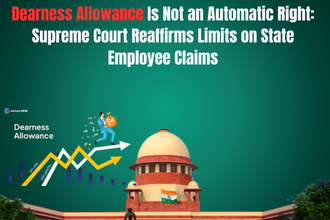In a significant development that could transform the Indian pharmaceutical and healthcare landscape, the Supreme Court on May 1, 2025, orally remarked that mandating doctors to prescribe only generic medicines would help eliminate unethical marketing practices, including bribery by pharmaceutical companies. The Bench comprising Justice Vikram Nath, Justice Sanjay Karol, and Justice Sandeep Mehta made these observations while hearing a Public Interest Litigation (PIL) aimed at regulating unethical pharma marketing practices.
This blog post explores the background, legal context, and potential implications of this observation for the healthcare sector, especially in terms of ethical medical practice and drug affordability.
Background: Petition Against Unethical Pharma Marketing
The case titled Federation of Medical and Sales Representatives Associations of India & Ors. v. Union of India & Ors. [W.P. (C) No. 323/2021] was brought by FMRAI, a national trade union representing medical and sales representatives, along with health rights activists from Jan Swasthya Abhiyan. The petition highlights the rampant bribery by pharmaceutical companies to doctors, incentivizing them to prescribe irrational, excessive, or overpriced branded drugs instead of cost-effective generics.
The petitioners sought the Supreme Court’s intervention to either:
- Issue binding guidelines to curb unethical pharmaceutical marketing practices until the Uniform Code of Pharmaceutical Marketing Practices (UCPMP) is given legislative backing, or
- Direct that the existing voluntary code be made enforceable with appropriate modifications under the powers granted by Articles 32, 141, 142, and 144 of the Constitution of India.
Supreme Court’s Key Observation: Generic Prescription as a Solution
During the hearing, Justice Sandeep Mehta emphasized the need for a statutory mandate requiring doctors to prescribe only generic medicines, stating:
“This will follow in line with what you are praying. In Rajasthan, there is now an executive instruction that every medical professional must prescribe generic medicine. They can’t prescribe by any company name. That should take care of things.”
The Court pointed out that generic-only prescriptions could eliminate the undue influence of pharmaceutical companies and prevent doctors from prioritizing brand deals over patient welfare.
The Legal and Regulatory Gap
The petition underscores a major regulatory gap in India. Currently:
- The UCPMP 2014 exists as a voluntary code, not a law.
- The Indian Medical Council (Professional Conduct, Etiquette and Ethics) Regulations, 2002 directs doctors to prescribe generic drugs “as far as possible,” but lacks teeth due to lack of penalties or monitoring.
- There is no central law that requires doctors to avoid brand prescriptions or pharmaceutical incentives.
While states like Rajasthan have issued executive orders mandating generic prescriptions, these are isolated examples and lack nationwide enforcement.
Implications of a Mandatory Generic Prescription Policy
If the Supreme Court eventually issues binding directions or the Union Government enacts legislation based on the Court’s views, the following key implications can be anticipated:
1. Reduced Cost of Medicines
Generic drugs are often 60-90% cheaper than branded equivalents. Making them mandatory will significantly lower out-of-pocket healthcare expenses for millions of Indians.
2. Improved Ethical Standards
Eliminating financial incentives from pharmaceutical companies will help restore ethics in the doctor-patient relationship, prioritizing patient welfare over profit.
3. Market Disruption
Branded drug manufacturers may see reduced market share, prompting a shift toward transparency and fair competition based on quality rather than aggressive marketing.
4. Legal Clarity
A Supreme Court-backed directive or legislative enactment would provide clear legal obligations for medical practitioners, pharmaceutical companies, and regulatory authorities.
What the Petitioners Are Demanding
The petitioners have consistently urged the government since 2005 to introduce a legally binding Code of Ethical Marketing. They argue that voluntary codes have proven ineffective and that:
- Pharma companies continue to offer doctors gifts, hospitality, travel perks, and sponsorships for seminars and conferences.
- These practices directly lead to irrational prescription behavior and public health risks.
They now seek judicial intervention to regulate and legally enforce ethical practices under constitutional supervision.
The Union Government’s Response So Far
According to submissions made in Court, the Union Government has constituted a High-Powered Committee to review the issues raised. However, as per the petitioner’s counsel, no concrete recommendations or implementation strategies have been placed on record.
This delay has prompted the Court to list the matter for further hearing on July 24, 2025, post the summer vacation.
Precedent: The Vijay Mehta PIL in Rajasthan
Justice Mehta referred to a PIL filed in Rajasthan, Vijay Mehta v. State of Rajasthan, where the High Court directed the state government to mandate generic prescriptions by doctors in government hospitals. This executive instruction is now being considered a model for national policy.
Challenges Ahead
Despite the Court’s supportive stance, several challenges remain:
- Quality Concerns: Generic medicines vary in bioequivalence. Doctors may hesitate to prescribe them unless stringent quality controls are in place.
- Resistance from Pharma Industry: Companies with heavy investments in branding may resist such changes, potentially lobbying against legal mandates.
- Monitoring Mechanisms: Enforcing compliance among lakhs of private practitioners across India will require robust regulatory infrastructure.
Conclusion: Toward Ethical and Affordable Healthcare
The Supreme Court’s oral remarks indicate a growing judicial willingness to address the commercialization of healthcare and restore ethical norms in medical practice. A nation-wide statutory requirement mandating the prescription of generic drugs could be a transformative reform, ensuring affordable healthcare and curbing pharmaceutical corruption.
While the matter is set for further hearing, this intervention by the apex court highlights the judiciary’s role in pushing for structural health reforms in the absence of legislative urgency. It’s a moment of reckoning for both the medical fraternity and pharma sector, and a potential leap toward universal, ethical, and affordable healthcare in India.


